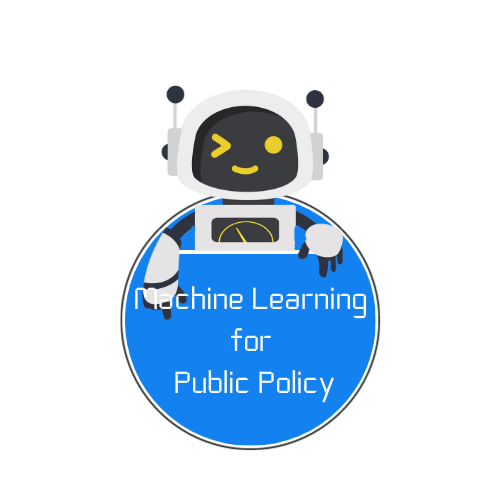An Introduction to Machine Learning for Public Policy

Machine learning has become an increasingly integral part of public policies. Solving prediction policy problems requires tools that are tuned to minimizing prediction errors, but also frameworks to ensure that models are fair. Even more importantly, it requires multi-disciplinary teams to develop solutions that match the complexity of public policy problems.
The ML4PP course will introduce the theory and applications of machine learning algorithms, with a focus on policy applications and issues. The course consists of 8 sessions, each consisting of a technical introductory lecture and a hands-on application of the topics to a real-world policy problem, R and Python.
To conclude the course, there will be a Collaborative Policy Challenge, which you will work on in groups and receive feedback on from both your peers and policy experts.
Course Contents
- Introduction to Machine Learning for Public Policy
- Prediction Framework/OLS
- Lasso/Regularization/Parameter tuning
- Classification
- Tree-based Methods
- Forecasting (Coming soon)
- Fair Machine Learning
- ML and Causality (Coming soon)
- Neural Networks
- More complex architectures and pre-trained models (Coming soon)
- NLP - Classification (Coming soon)
- NLP - Querying Text Databases (Coming soon)
- Public data, biases, and synthetic data (Coming soon)
